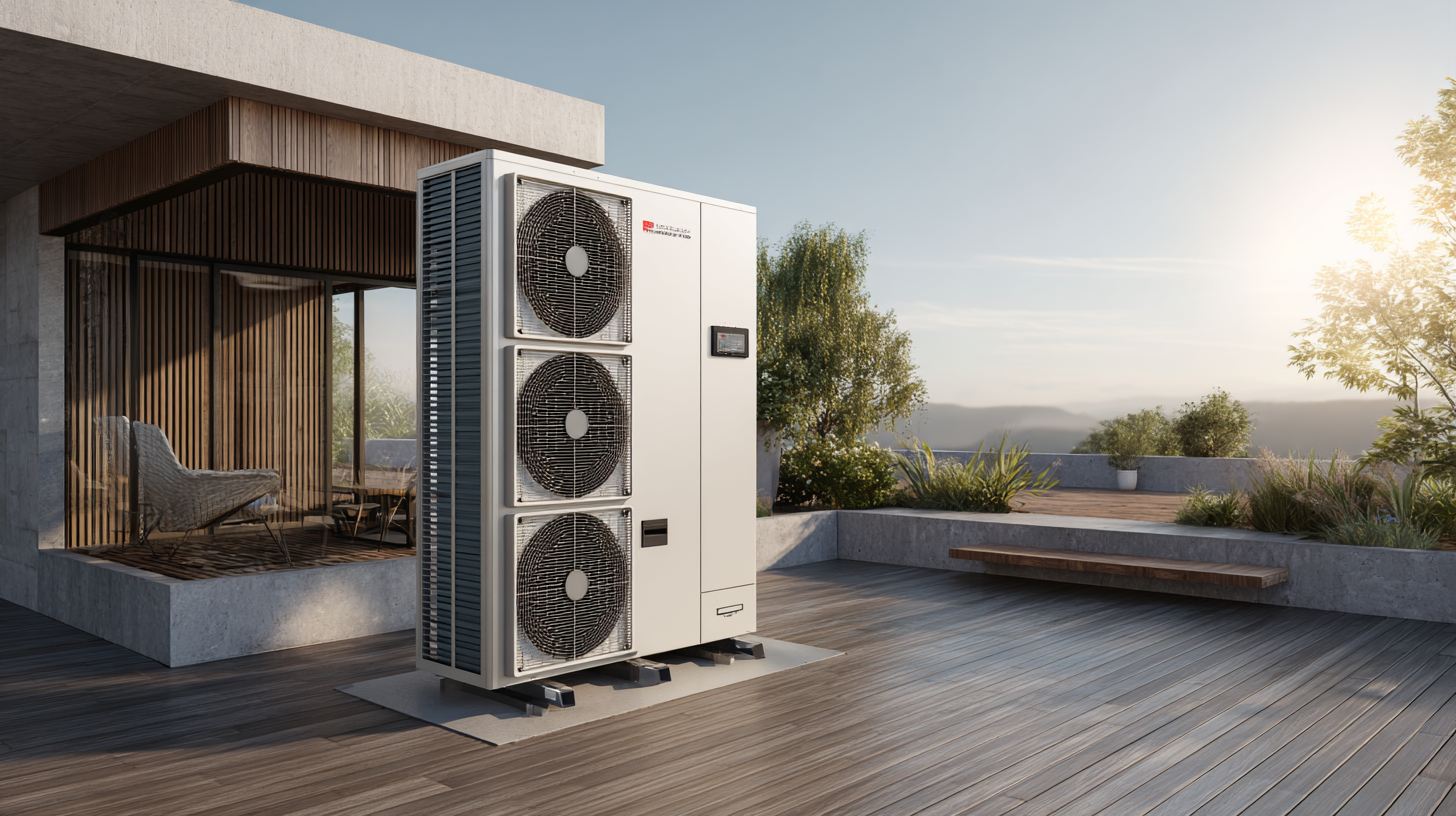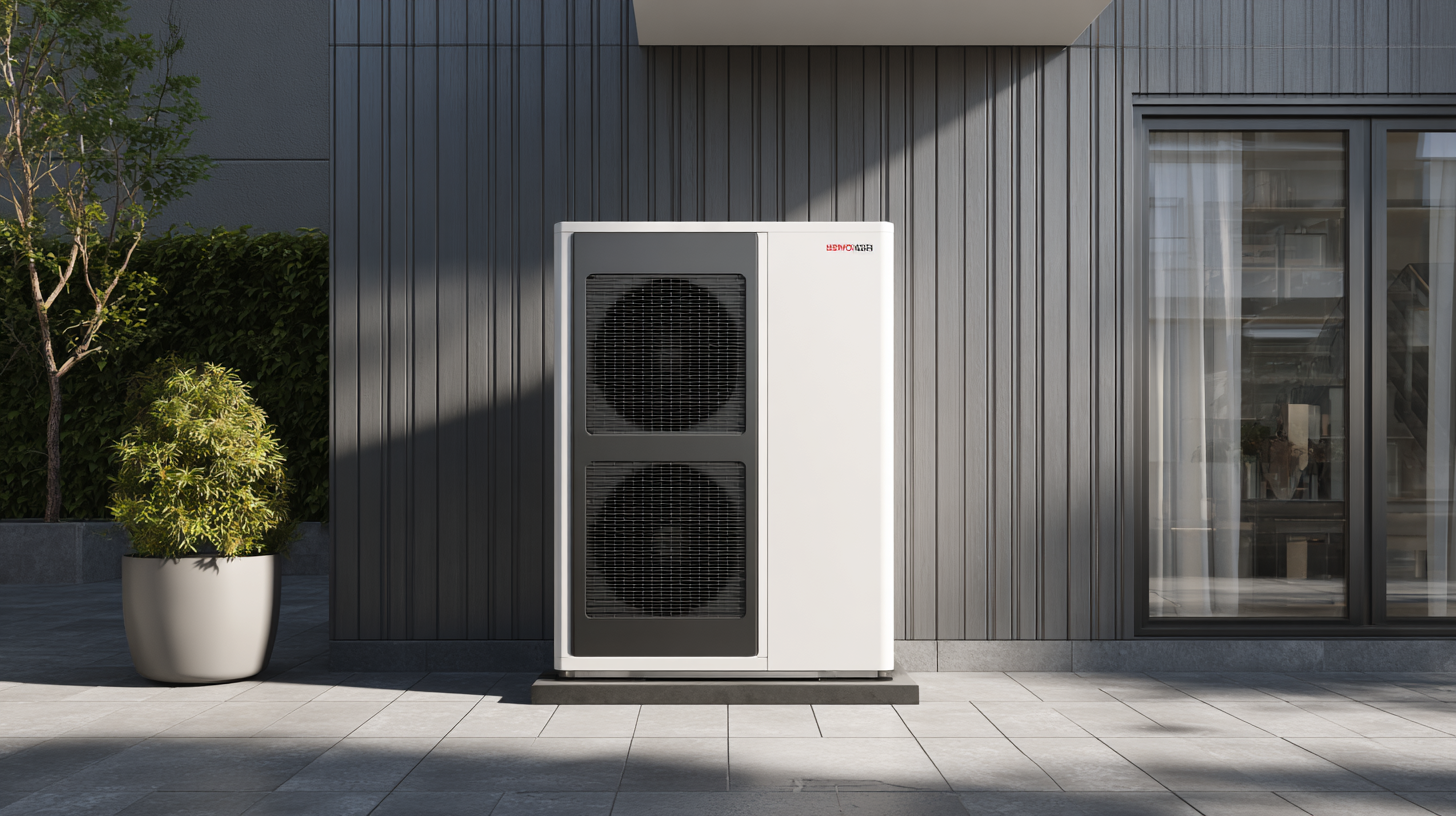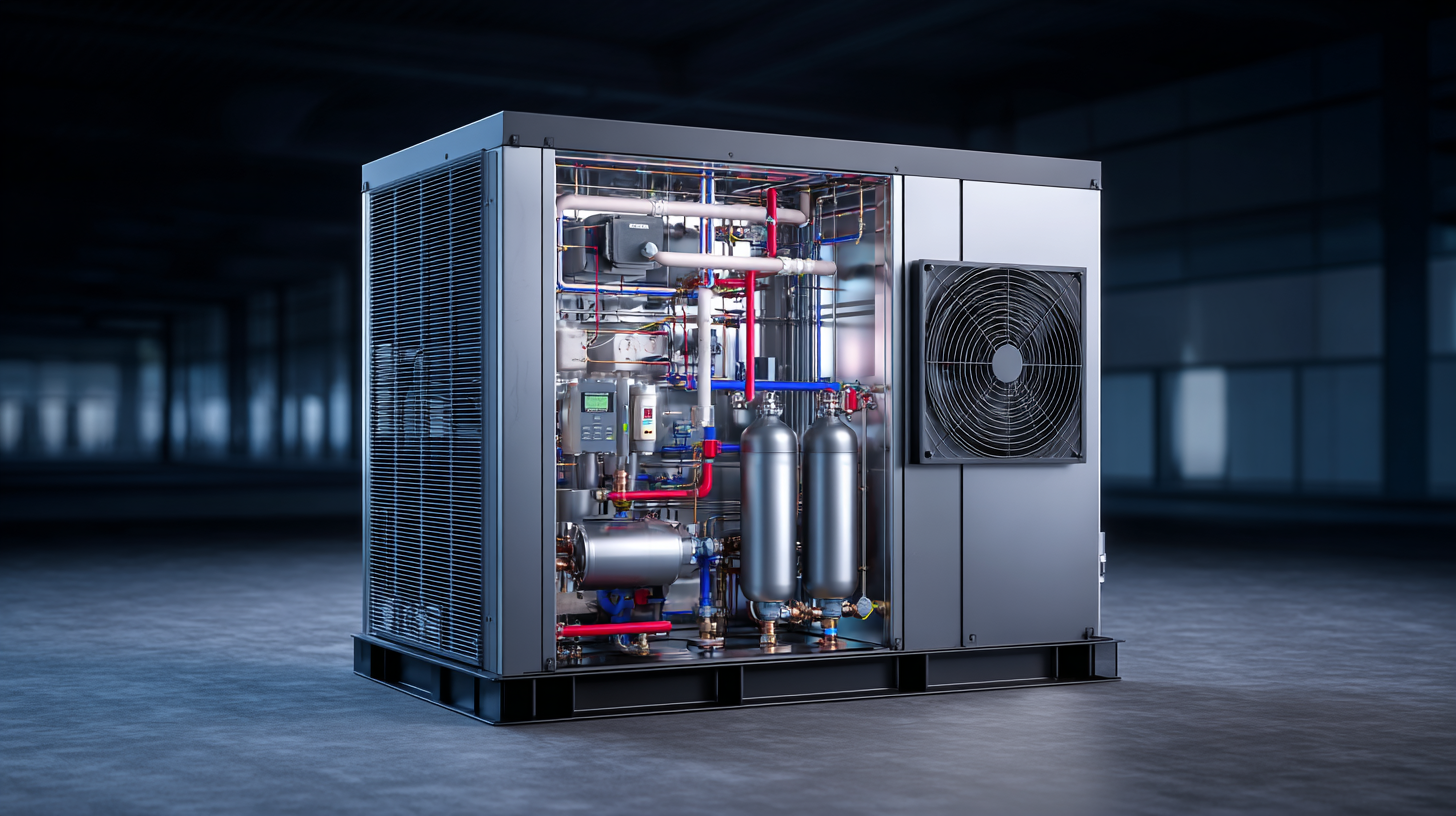Leave Your Message
As we look towards 2025, the heat pump technology sector is poised for significant advancements that promise to shape global markets. With the International Energy Agency (IEA) projecting that heat pump installations worldwide will surpass 200 million by 2030, the demand for efficient, sustainable energy solutions continues to grow. Innovations emerging from top factories in China are at the forefront of this evolution, showcasing enhanced efficiency and cutting-edge design that cater to both residential and commercial applications. The potential for heat pumps to reduce carbon emissions by up to 70% compared to conventional heating methods highlights their crucial role in achieving global climate goals. This blog will explore the anticipated innovations in heat pump technology and how they will cater to the needs of international buyers looking for reliable and advanced heating solutions.

As we look towards 2025, the heat pump market is poised for significant advancements. Identifying key features of high-quality heat pumps is essential for global buyers aiming to enhance energy efficiency and sustainability. One crucial aspect is the Seasonal Performance Factor (SPF), which indicates how effectively the pump operates over an entire heating or cooling season. Higher SPF values translate to improved efficiency and reduced energy bills, making it an essential feature to evaluate.
Another key feature to consider is the scalability of the heat pump system. Future innovations will focus on modular designs that allow for easy expansion and compatibility with renewable energy sources like solar or wind. This adaptability not only meets varying energy needs but also supports a greener energy landscape.
**Tips:** When choosing a heat pump, prioritize brands that offer smart technology integration. This allows for real-time monitoring and remote control, ensuring optimal performance and energy savings. Additionally, look for models with robust warranties and after-sales support, providing peace of mind for your investment.
As the demand for heat pump technology continues to rise globally, understanding the credentials of manufacturers and the significance of industry certifications becomes paramount for buyers in 2025. Manufacturers who invest in reputable certifications demonstrate a commitment to quality, safety, and environmental sustainability. Certifications such as ISO 9001 for quality management and ISO 14001 for environmental management affirm that these companies adhere to international standards, ensuring their products are not only efficient but also contribute positively to the ecosystem.
Moreover, industry-specific certifications like the AHRI (Air-Conditioning, Heating, and Refrigeration Institute) certification provide buyers with confidence in the performance claims of heat pump products. This certification assures that the heat pumps have been rigorously tested for efficiency and reliability under real-world conditions. For global buyers looking to invest in heat pump technology, prioritizing manufacturers with recognized certifications not only guarantees superior product quality but also lays the foundation for long-term partnerships rooted in trust and excellence.
| Manufacturer Credential | Industry Certifications | Technological Features | Environmental Impact | Market Availability Year |
|---|---|---|---|---|
| ISO 9001 Certified | CE Marking, Energy Star | Advanced inverter technology | Low GWP refrigerants | 2025 |
| UL Listed | AHRI Certified | Smart control systems | CO2 emissions reduced by 30% | 2025 |
| NSF Certified | ISO 14001 Certified | Geothermal integration | Renewable thermal energy | 2025 |
As heat pump technology continues to evolve, the importance of energy efficiency ratings and performance metrics becomes increasingly critical for global buyers in 2025. These ratings provide essential insights into the operational efficiency of heat pumps, enabling consumers to make informed choices that align with their sustainability goals. In a marketplace where energy consumption and environmental impact are paramount, understanding these metrics can differentiate between a high-performing unit and a less efficient model that could lead to increased utility costs and a larger carbon footprint.
The upcoming innovations in heat pump technology, such as advanced refrigerants and smart controls, are expected to significantly enhance energy efficiency. Manufacturers are likely to introduce systems that not only comply with stricter energy regulations but also exceed current performance standards. By focusing on metrics like coefficient of performance (COP) and seasonal energy efficiency ratio (SEER), buyers will be better equipped to evaluate the long-term value of their investment. This shift toward transparency in performance indicators means that consumers will have the opportunity to select products based not only on cost but also on their potential to reduce energy consumption and contribute to a more sustainable planet.
As the market for heat pump technology continues to evolve, the significance of robust after-sales support and warranty options cannot be overstated. According to a report by the International Energy Agency (IEA), nearly 50% of heat pump purchasers prioritize warranty conditions when making their buying decisions. This statistic underscores the growing awareness of customers regarding reliability and long-term service. Manufacturers that offer comprehensive warranties are likely to instill greater confidence in their products, leading to higher customer satisfaction and loyalty.
When considering the purchase of a heat pump, it’s advisable for buyers to evaluate not only the upfront costs but also the long-term maintenance services provided. A recent study from the U.S. Department of Energy found that systems with extended service contracts reduce repair and maintenance costs by up to 30%. This means that choosing a provider with solid after-sales support can lead to substantial savings over the product's lifespan.
Tip: Always ask potential suppliers about their warranty terms and after-sales services. Look for vendors with a proven track record in customer service, as this can greatly affect your overall experience. Additionally, consider checking online reviews and testimonials to gauge the reliability of the after-sales support provided.

As we look ahead to 2025, the heat pump technology landscape is poised for significant advancements that promise to redefine energy efficiency and manufacturing processes. The global heating equipment market is projected to expand, fueled by a growing emphasis on sustainability and the reduction of energy waste. The Better Buildings Initiative aims to accelerate the adoption of advanced heat pump solutions, making them more accessible and affordable for consumers by 2027. This initiative underscores the urgency and importance of transitioning to energy-efficient systems that benefit both the environment and household budgets.
To thrive in this transforming market, manufacturers should consider adopting innovative technologies inspired by sectors like aerospace. Techniques refined in rocket science are being repurposed to enhance the efficiency and effectiveness of industrial heat pumps, setting a new standard for performance.
Tip 1: Stay informed about the latest regulations and incentives related to energy-efficient technologies, as these can significantly impact your purchasing decisions.
Tip 2: Evaluate your existing heating solutions and consider a phased approach to integrating newer heat pump technologies, optimizing your transition for both cost and energy savings.
Tip 3: Foster partnerships with technology firms that specialize in emerging innovations, as collaboration can lead to enhanced product development and market competitiveness.

